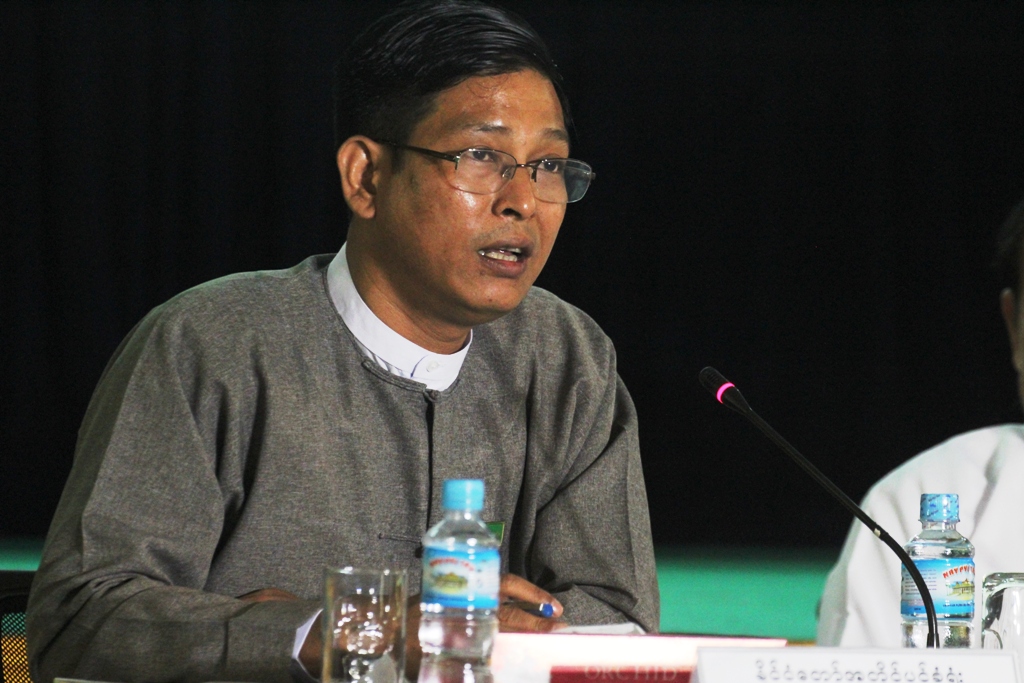State Counsellor’s Office director general and government spokesman U Zaw Htay tells Frontier’s Nyan Hlaing Lynn about military activities in Maungdaw District in the wake of the August 25 attacks and the government’s response to allegations of abuses by security forces.
You said that northern Rakhine State has been declared a military operations area. When was that decision made?
Since the very first day we had told the Tatmadaw to use helicopters and troops. It was on August 25. Then the Tatmadaw asked to designate the area as a military campaign area. We did it on the day that they asked for it – not just now. When the October attacks happened, the troops were withdrawn at the end of February. Since then it has no longer been an operations area. Now the troops have come in again and it has become an operations area.
Which area does this designation cover?
The whole of Maungdaw District, including Buthidaung and Rathedaung townships.
When will the operation end?
It depends on the situation on the ground. The mission has four activities: counterterrorism; the security of the people; stability and peace; and rule of law. When the mission is completed, the troops will withdraw. We cannot give a definite date.
When will ethnic refugees be resettled?
Emergency evacuation has been done. Resettlement and rehabilitation must be done later.
What do you want to say in response to reports in international media about the people who have fled the conflict?
There are said to be thousands have who fled and are staying in an area called ‘zero line’ between the [Myanmar-Bangladesh border]. We are conducting an inquiry of the situation on the ground. Those who have fled can be of two types: the ones who made the terror attack and escaped, and the others who are women and children.
What’s the government’s response to allegations that civilians have been attacked?
The terrorists are mixed in with ordinary civilians. Soldiers from the United States are allowed to shoot if their life is under threat. Now Bengalis* are holding weapons – swords, daggers, catapults and home-made rifles. If they are going to harm you, you can shoot them.
The final strategy of terrorists is to mix themselves up with the civilians to be able to claim that civilians are being attacked. It is not just in Myanmar where this happens; it is happening in Iraq, Afghanistan, Syria and so on to NATO and US troops.
The Tatmadaw is facing the same. When we are going to enter a village, we announce in advance not to mix with the terrorists, not to hold weapons and not to show hostile behaviour toward security troops. It is difficult to separate the terrorists [from civilians]. You see the attackers who have survived. Some of them are farm labourers who are close to the local residents. So it is difficult to tell them apart.
*EDITOR’S NOTE: Bengali is a term commonly used by government officials and many people in Myanmar to refer to the Rohingya population of Rakhine State.







